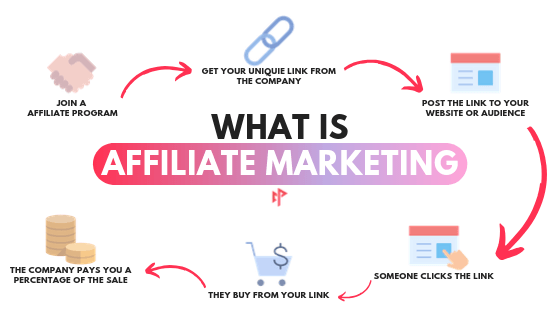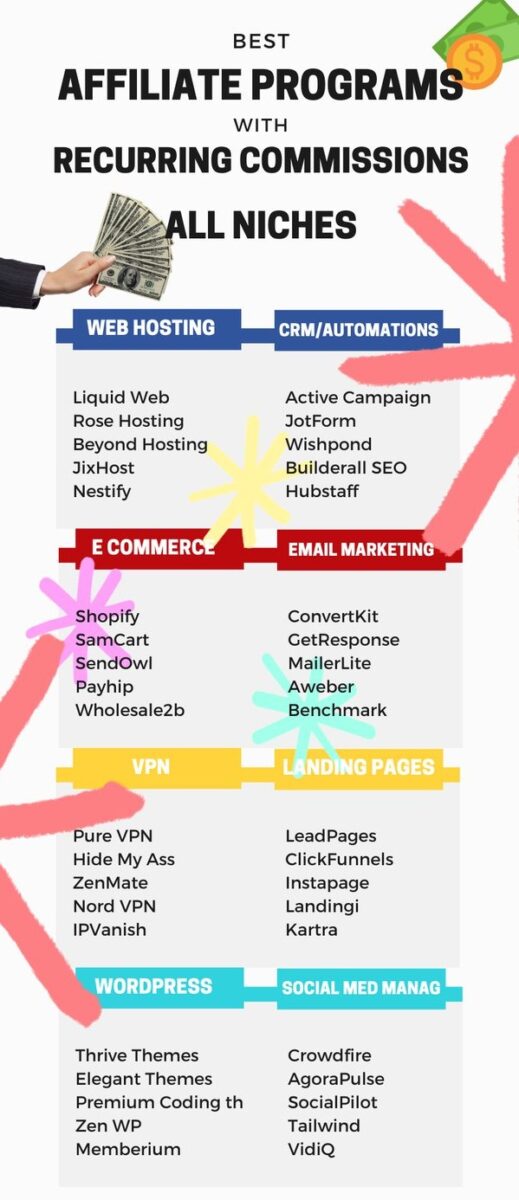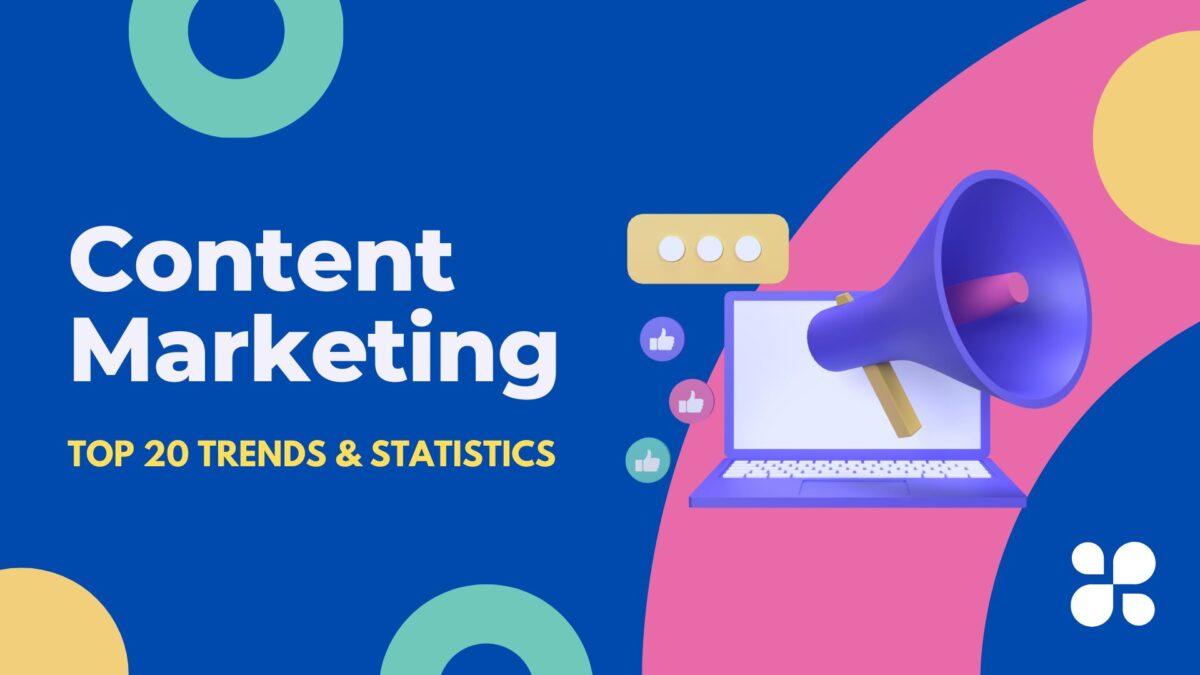Affiliate marketing is a lucrative and accessible way to monetize your blog, YouTube, or social media channel. In this comprehensive guide, we’re going to dive into the exciting world of affiliate marketing.
So let’s get started by defining what affiliate marketing is, exploring its fascinating history, and discussing why it’s such an important part of the online marketing landscape.
You can use the table of contents below to quickly navigate to any specific section.
What is Affiliate Marketing
Affiliate marketing is a type of online marketing where a business rewards an affiliate (that’s you, my friend!) for each customer they bring to the company through their promotional efforts.
In other words, you promote a product or service on behalf of a business, and when someone clicks on your affiliate link and makes a purchase, you earn a commission.
It’s a win-win for both the business and the affiliate!
Brief History of Affiliate Marketing
Believe it or not, affiliate marketing has been around since the late 1980s when the first affiliate program was launched by PC Flowers & Gifts.
Since then, it has grown into a massive industry, with billions of dollars in revenue generated every year. And with the rise of social media and online influencers, affiliate marketing is becoming even more important for businesses looking to expand their reach and for individuals looking to earn money through their online influence.

Why Affiliate Marketing is a Great Opportunity for Beginners
So why is affiliate marketing such a big deal? Well, for one thing, it’s a low-risk way for businesses to reach new customers.
They only pay out a commission when a sale is made, so they don’t have to worry about wasting money on ineffective marketing efforts.
And for affiliates, it’s a great way to monetize their online presence and share products and services they believe in with their audience.
In the following sections, we’ll dive deeper into the nitty-gritty of how to get started with affiliate marketing and how to be successful at it.
So let’s roll up our sleeves and get ready to make some money!
Table of Contents
Getting Started with Affiliate Marketing
Are you ready to start making some moolah with affiliate marketing?
Then it’s time to roll up your sleeves and get started. Here’s what you need to know to get off to a good start.
How to Choose an Affiliate Niche
The first step to becoming a successful affiliate marketer is to choose a niche. A niche is a specific topic or area of interest that you’ll be focusing on in your content and promotions. It’s important to choose a niche that you’re passionate about, that has a large audience, and that has the potential for affiliate offers. Here’s how to do it:
- Brainstorm a list of topics you’re interested in and knowledgeable about.
- Use keyword research tools to identify popular topics and niches.
- Research your competition to see what niches they’re targeting.
- Choose a niche that has high demand but low competition, and that fits with your brand and values.
How to Find Affiliate Programs
Once you’ve chosen your niche, it’s time to find affiliate programs to promote. There are many different affiliate programs out there, so it’s important to find ones that are a good fit for your niche and your audience. Here’s how to do it:
- Search for affiliate programs on Google using keywords related to your niche.
- Browse affiliate networks like Amazon Associates, ShareASale, and Commission Junction.
- Look for affiliate programs on the websites of products or services you’re interested in promoting.
- Ask other affiliate marketers in your niche for recommendations.
How to Sign Up for Affiliate Programs
Once you’ve found affiliate programs that you’re interested in, it’s time to sign up. The process will vary depending on the program, but here are some general steps to follow:
- Read the program’s terms and conditions to ensure you’re comfortable with the requirements and commission rates.
- Fill out the application form and provide any required information, such as your website or social media profiles.
- Wait for approval from the program. Some programs will approve you automatically, while others may require a manual review.
- Once you’re approved, log in to your affiliate account and get your unique affiliate links.
Understanding Affiliate Networks
Affiliate networks are platforms that connect affiliates with multiple affiliate programs. They make it easier to find and join multiple programs, track your commissions, and get paid. Here are some of the top affiliate networks to check out:
- Amazon Associates
- ShareASale
- Commission Junction
- ClickBank
- PartnerStack
And there you have it – a step-by-step guide to getting started with affiliate marketing. Now it’s time to start exploring your niche and finding the best affiliate programs to promote.
The retail industry dominates global affiliate revenue with 44%, followed by telecom and media at 25% and travel and leisure at 16%, according to a study.
Best Affiliate Programs for Beginners
So, you’ve decided to dip your toes into the world of affiliate marketing, but you’re not sure which affiliate programs to join as a beginner.
Don’t worry, I’ve got you covered!
In this section, I’ll give you a quick overview of some of the most popular affiliate programs out there for beginners.
Amazon Associates
Let’s start with the elephant in the room – Amazon.
Amazon Associates is one of the largest and most well-known affiliate programs in the world. With millions of products available on Amazon, it’s easy to find something to promote in almost any niche.
Some key things to know about Amazon Associates:
- Commission rates vary depending on the product category, but generally range from 1% to 10%.
- Amazon has a 24-hour cookie duration, which means that if a user clicks on your affiliate link and makes a purchase within 24 hours, you’ll earn a commission on that sale.
- You can create custom affiliate links for specific products or pages, or use Amazon’s SiteStripe tool to generate links from within your Amazon account.
ShareASale
ShareASale is an affiliate network that connects affiliates with over 4,500 merchants in a variety of niches. It’s a great option if you’re looking for a wide range of products to promote.
Some key things to know about ShareASale:
- Commission rates vary depending on the merchant, but can range from 5% to 50% or more.
- ShareASale offers a 30-day cookie duration, which means that if a user clicks on your affiliate link and makes a purchase within 30 days, you’ll earn a commission on that sale.
- ShareASale has a user-friendly dashboard that makes it easy to search for and join new affiliate programs, track your earnings, and get paid.
Commission Junction
Commission Junction, also known as CJ Affiliate, is another popular affiliate network with over 3,000 merchants to choose from.
Some key things to know about Commission Junction:
- Commission rates vary depending on the merchant, but can range from 2% to 50% or more.
- Commission Junction offers a variety of tracking options, including cookies, mobile tracking, and cross-device tracking.
- Commission Junction has a minimum payout threshold of $50, which can be paid out via check or direct deposit.
ClickBank
ClickBank is a marketplace that specializes in digital products like ebooks, courses, and software. It’s a great option if you’re looking to promote products in the make money online or health and fitness niches.
Some key things to know about ClickBank:
- Commission rates can be as high as 75% or more, depending on the product.
- ClickBank offers a 60-day cookie duration, which means that if a user clicks on your affiliate link and makes a purchase within 60 days, you’ll earn a commission on that sale.
- ClickBank has a user-friendly marketplace that makes it easy to search for and promote products, track your earnings, and get paid.
PartnerStack
PartnerStack is an affiliate network that specializes in software-as-a-service (SaaS) products. It’s a great option if you’re looking to promote products in the business or tech niches.
Some key things to know about PartnerStack:
- Commission rates vary depending on the product, but can range from 10% to 50% or more.
- PartnerStack offers a variety of tracking options, including cookies, mobile tracking, and real-time analytics.
- PartnerStack has a user-friendly dashboard that makes it easy to search for and join new affiliate programs, track your earnings, and get paid.
Impact
Impact’s affiliate marketing program allows you to promote products and services from a wide range of brands and earn a commission on every sale. The platform offers a vast selection of advertisers, including well-known companies like Adidas, Uber, and Airbnb.
Impact’s affiliate program is an excellent choice for beginners who are looking to monetize their content.
Here are some of the benefits of using the platform:
- Impact’s platform offers a broad selection of advertisers to choose from, including well-known brands, making it easy to find products that align with your content and audience.
- The platform uses innovative technology to track your performance and provide valuable insights into your audience’s behavior.
- The platform provides detailed reports on your earnings, clicks, and conversions, making it easy to track your progress and optimize your strategy.
Other popular affiliate programs for beginners
Of course, there are many other affiliate marketing programs out there to choose from!
Some other popular options include:
It’s a good idea to do some research and see which affiliate programs are a good fit for your niche and audience. Don’t be afraid to experiment and try out different programs to see what works best for you.
High-Paying Affiliate Marketing Programs for Beginners
Partnering with high-paying affiliate programs can be a great way to increase your affiliate income. Here are some of the best high-paying affiliate programs that you should consider if you want to maximize your affiliate commissions.
Semrush
If you’re looking for an all-in-one marketing toolkit to boost your website’s SEO, Semrush is a great option. They offer a suite of tools that can help you with keyword research, site audits, backlink analysis, competitor research, and more. With a commission rate of up to 40%, Semrush is an attractive option for affiliate marketers.
Siteground
Siteground is a leading web hosting service known for its speed, reliability, and excellent customer service. They offer a range of hosting plans, including shared hosting, cloud hosting, and dedicated servers. With a commission rate of up to $125 per sale, Siteground is a top choice for affiliate marketers in the web hosting niche.
Liquid Web
If you’re looking for a premium web hosting service that provides high-end performance, security, and support, Liquid Web is an excellent option. They offer managed hosting plans for WordPress, WooCommerce, and other platforms, as well as dedicated servers and cloud hosting. With a commission rate of up to $700 per sale, Liquid Web is one of the highest-paying web hosting affiliate programs.
Bluehost
Bluehost is a popular web hosting service that provides reliable and affordable web hosting solutions. They offer a range of hosting plans, including shared hosting, VPS hosting, and dedicated servers. With a commission rate of up to $65 per sale, Bluehost is a great option for affiliate marketers in the web hosting niche.
Hostinger
Hostinger is a budget-friendly web hosting service that offers excellent value for its price. They offer shared hosting, VPS hosting, and cloud hosting plans, as well as a website builder and domain registration services. With a commission rate of up to 60%, Hostinger is one of the highest-paying web hosting affiliate programs.
HostGator
HostGator is a well-known web hosting service that provides affordable hosting solutions with excellent features. They offer a range of hosting plans, including shared hosting, VPS hosting, and dedicated servers. With a commission rate of up to $125 per sale, HostGator is a top choice for affiliate marketers in the web hosting niche.
Cloudways
Cloudways is a managed cloud hosting service that offers high-performance hosting with excellent features and support. They offer hosting plans for popular cloud platforms like AWS, Google Cloud, and DigitalOcean. With a commission rate of up to $200 per sale, Cloudways is one of the highest-paying cloud hosting affiliate programs.
Elementor
Elementor is a popular website builder for WordPress that allows you to create stunning websites with ease. They offer a range of templates and design elements, as well as a drag-and-drop editor that makes it easy to customize your site. With a commission rate of up to 50%, Elementor is a great option for affiliate marketers in the website builder niche.
The affiliate programs listed above are just a few of the many high-paying options available, but they are all well-established brands with excellent products and features.

Consider incorporating some of these programs into your affiliate marketing strategy to maximize your earnings.
Setting Up Your Affiliate Marketing Program
Congratulations on finding the perfect affiliate programs to promote!
Now it’s time to set up your affiliate marketing program and start earning commissions.
Choosing the right affiliate products to promote
One of the keys to success in affiliate marketing is choosing the right products to promote. Here are some things to consider when selecting products:
- Choose products that are relevant to your niche and audience.
- Look for high-quality products that you would feel comfortable promoting to your followers.
- Check the commission rates and cookie duration of each product to ensure you’re getting a fair deal.
- Consider the demand and popularity of the product to maximize your potential earnings.
Understanding affiliate links
Affiliate links are special links that include a unique tracking code. When someone clicks on your affiliate link and makes a purchase, you’ll earn a commission on the sale.
Here are some things to keep in mind when using affiliate links:
- Make sure you use the correct affiliate link for each product you’re promoting.
- Disclose to your audience that you’re using affiliate links, either through a disclaimer on your website or by disclosing it in your content.
- Avoid using misleading or spammy tactics to promote your affiliate links.
Creating content to promote affiliate products
Creating content is a crucial part of promoting affiliate products. Here are some ideas for creating content that drives affiliate sales:
- Write product reviews that provide valuable information to your audience.
- Create tutorial videos that demonstrate how to use the product.
- Write blog posts that offer tips and advice related to the product.
- Share your personal experiences using the product.
How to track affiliate sales and commissions
Tracking your affiliate sales and commissions is important so you can see how your promotions are performing. Here are some ways to track your earnings:
- Use the tracking tools provided by the affiliate program you’re promoting.
- Use a third-party tracking service to monitor your sales and commissions.
- Keep track of your sales and commissions manually using a spreadsheet.
Setting up your affiliate marketing program involves choosing the right products to promote, understanding affiliate links, creating content to promote products, and tracking your earnings. By following these steps, you can set yourself up for success in affiliate marketing.
Tips for Beginner Affiliate Marketers to Succeed
Now that you have set up your affiliate marketing program and identified the products to promote, it’s time to focus on strategies for success. Here are some tips to help you maximize your earnings and become a successful affiliate marketer.
Writing compelling product reviews
Product reviews are a powerful way to drive affiliate sales. Here are some tips for writing reviews that your audience will find compelling:
- Provide an honest and thorough review of the product.
- Include both the pros and cons of the product.
- Use personal anecdotes and experiences to make the review more relatable.
- Include high-quality images and videos of the product in use.

Creating valuable content for your audience
Creating valuable content is key to building trust with your audience and driving affiliate sales. Here are some tips for creating content that your audience will find valuable:
- Create tutorials, how-to guides, and other types of educational content that help your audience solve problems and overcome challenges.
- Share your personal experiences and stories to make your content more relatable and engaging.
- Use humor and wit to make your content more memorable and shareable.
Building trust with your audience
Building trust is essential to successful affiliate marketing. Here are some tips for building trust with your audience:
- Be transparent and disclose that you’re using affiliate links.
- Only promote products that you truly believe in and have used yourself.
- Provide honest and unbiased reviews of products.
- Respond promptly to your audience’s questions and concerns.
Leveraging social media to promote affiliate products
Social media is a powerful tool for promoting affiliate products. Here are some tips for using social media effectively:
- Share your affiliate links on social media platforms such as Facebook, Twitter, and Instagram.
- Use visual content such as images and videos to promote your affiliate products.
- Engage with your followers and respond to their comments and questions.
- Share valuable content on social media that drives traffic to your website or blog.
These tips for successful affiliate marketing can help you earn more commissions and build a loyal audience. By choosing the right products, writing compelling reviews, creating valuable content, building trust with your audience, and leveraging social media, you can become a successful affiliate marketer.
Suggested Reading: Content Marketing A-to-Z – Everything You Need To Know
Understanding Affiliate Commissions as a Beginner
Understanding how affiliate commissions work is essential to making money with affiliate marketing.
In this section, we’ll cover the basics of commissions, different commission structures, and how to negotiate commission rates.
How commissions work in affiliate marketing
As an affiliate marketer, you earn a commission when someone purchases through your unique affiliate link. The commission rate varies depending on the affiliate program, and it can range from a few percent to 50% or more.
Different types of commission structures for beginners
There are several types of commission structures in affiliate marketing. The most common ones include:
- Pay per sale: This is the most common commission structure, where you earn a percentage of the sale when someone purchases through your affiliate link.
- Pay per click: With this commission structure, you earn a commission every time someone clicks on your affiliate link, regardless of whether they make a purchase.
- Pay per lead: With this commission structure, you earn a commission when someone takes a specific action, such as filling out a form or signing up for a trial.
A survey of affiliates around the world revealed that over half (57.55%) reported earning less than $10,000 from their affiliate marketing efforts. Approximately one in six affiliates earned up to $50,000, while nearly four percent generated over $150,000 in revenue.
How to negotiate commission rates as a beginner
Negotiating commission rates is an important part of affiliate marketing. Here are some tips for negotiating higher commission rates:
- Show the value you bring to the program, such as your audience size, engagement rate, and conversion rate.
- Demonstrate your past performance with the program by providing data on your sales and conversions.
- Research the industry standard commission rates for your niche and use that information to negotiate a higher rate.
By choosing the right commission structure, negotiating higher rates, and demonstrating the value you bring to the program, you can effectively increase your affiliate earnings.
Common Mistakes to Avoid in Affiliate Marketing
While affiliate marketing can be a lucrative way to earn money online, there are some common mistakes that beginners should avoid.
In this section, we’ll cover some of the most common mistakes to avoid in affiliate marketing.
Not disclosing affiliate links
One of the most important things you need to do as an affiliate marketer is to disclose your affiliate links to your audience. This means letting your readers know that you may earn a commission if they purchase through your link. Failure to disclose your affiliate links can hurt your credibility and can even lead to legal trouble.
Promoting low-quality products
Promoting low-quality products can hurt your reputation and can even lead to refund requests and chargebacks. Before promoting any product, make sure that it’s a quality product that you would be happy to use yourself. Do your research, read reviews, and only promote products that you truly believe in.
Spamming your audience with promotions
Nobody likes to be bombarded with promotions, so avoid spamming your audience with too many affiliate links. Instead, focus on providing value to your audience by creating helpful content that addresses their needs and interests.
Overloading your content with affiliate links
While it’s important to include affiliate links in your content, overloading your content with too many links can hurt your credibility and can even lead to lower conversion rates. Instead, focus on including relevant links where they make sense, and make sure that they’re easy to find.
Not focusing on building relationships with your audience
Building relationships with your audience is essential to the success of your affiliate marketing efforts. Focus on providing value to your audience, engaging with them through comments and social media, and responding to their questions and concerns. Building trust with your audience can help you build a loyal following that will be more likely to make purchases through your affiliate links.
Affiliate Marketing Tools for Beginners
To be successful in affiliate marketing, you need to have the right tools at your disposal. In this section, we’ll cover some of the best tools for affiliate marketing that can help you to save time and maximize your earnings.
Affiliate marketing plugins and software
There are a variety of affiliate marketing plugins and software that can help you to manage your affiliate links and track your commissions. These tools can automate many of the tedious tasks associated with affiliate marketing and can help you to save time and boost your earnings. Some popular examples include ThirstyAffiliates, Pretty Links, and ShareASale.
Keyword research tools
Keyword research is an essential part of SEO and can help you to rank higher in search engine results pages. By targeting the right keywords, you can increase your visibility and drive more traffic to your affiliate links. Some popular keyword research tools include Ahrefs, SEMrush, and Google Keyword Planner.
Website builders and hosting services
Your website is the backbone of your affiliate marketing business, so it’s important to choose the right website builder and hosting service. Some popular website builders include WordPress, Wix, and Squarespace. When it comes to hosting, there are a variety of options available, including Bluehost, SiteGround, and HostGator.
Social media management tools
Social media is a powerful tool for promoting your affiliate links and building relationships with your audience. To maximize your impact on social media, consider using a social media management tool like Hootsuite, Buffer, or Sprout Social. These tools can help you to schedule posts, track engagement, and manage multiple social media accounts from a single dashboard.
These are just a few of the many tools available to help you succeed in affiliate marketing. By using the right tools for the job, you can save time, maximize your earnings, and build a successful affiliate marketing business.
Legal Considerations for Affiliate Marketing
As with any business, there are legal considerations to keep in mind when it comes to affiliate marketing. In this section, we’ll cover some of the key legal considerations that every affiliate marketer should be aware of.
Disclosure and compliance requirements
It’s important to disclose your affiliate relationship with your audience to comply with legal requirements and maintain trust. This means you need to disclose any affiliate links and ensure that your audience knows that you receive compensation for any purchases they make. Failure to disclose this information can result in legal consequences and a loss of trust with your audience.
Tax Considerations for affiliate marketing
Affiliate marketing income is considered taxable income by the IRS and may require you to pay taxes. Depending on where you live, there may be specific tax laws that apply to affiliate marketing income. It’s important to consult with a tax professional to ensure that you are meeting all of your tax obligations.
Intellectual property and copyright issues
It’s essential to respect the intellectual property and copyright of others when creating content for your affiliate marketing business. This includes avoiding trademark infringement, respecting copyright laws, and obtaining permission for any copyrighted content you use.
Understanding the legal considerations of affiliate marketing is crucial for the long-term success of your business.
Scaling Your Affiliate Marketing Business
Once you’ve gotten the hang of affiliate marketing, you may be ready to take your business to the next level. In this section, we’ll explore some strategies for scaling your affiliate marketing business.
Building a team of affiliates
One way to scale your affiliate marketing business is by building a team of affiliates who can promote your products and services. This allows you to expand your reach and tap into new audiences. To do this, you’ll need to create an affiliate program and offer attractive commissions to incentivize affiliates to promote your products.
Outsourcing content creation and marketing tasks
As your business grows, you may find that you’re spending more time creating content and managing your marketing campaigns. To free up more time, you can outsource these tasks to freelancers or a digital marketing agency. This allows you to focus on the strategic aspects of your business while delegating day-to-day tasks.

Expanding your reach through advertising
Paid advertising can be an effective way to scale your affiliate marketing business. By running ads on social media platforms like Facebook and Instagram, you can reach a larger audience and attract more traffic to your website. However, it’s important to make sure that your ad campaigns are profitable and that you’re generating a positive return on investment.
Building your product to promote
One way to take your affiliate marketing business to the next level is by creating your product to promote. This allows you to earn higher commissions and have more control over your business. To do this, you’ll need to conduct market research, develop a product, and create a marketing strategy to promote it.
Scaling your affiliate marketing business takes time, effort, and strategy.
Conclusions
Now that you have a good understanding of what affiliate marketing is, how it works, and what you need to do to get started, it’s time to take action!
Start exploring different niches and affiliate programs, and don’t be afraid to experiment with different strategies until you find what works best for you.
With dedication and persistence, you can build a successful affiliate marketing business that generates passive income and helps you achieve your financial goals.
Good luck!
Recommended: Digital Marketing – Free How-To Guide for the Beginners

Ali is a digital marketing blogger and author who uses the power of words to inspire and impact others. He has written for leading publications like Business2Community, Inc. Magazine, and Marketing Profs. When not writing, he enjoys spending time with his family.

